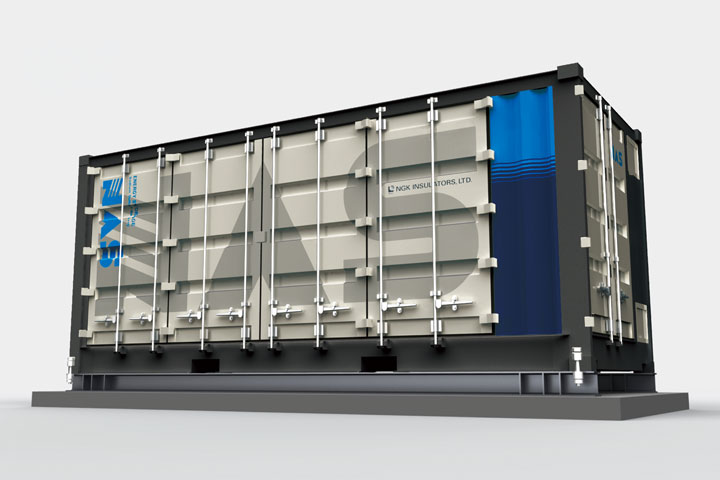NGK Insulators, a Japanese network-attached storage (NAS) specialist, announced it will deploy a 2.6 MW rooftop PV system and a 200 kW/1,200 kWh battery at its manufacturing sites in Nomi City, Ishikawa Prefecture, Japan.
“Combining the NAS battery with the PV system will enable electricity to be supplied to important equipment at the plant for up to 10 hours when power from the grid is interrupted,” the company said in a statement. “Moreover, it will be used as a countermeasure against instantaneous voltage drops caused by lightning strikes and so forth. This will contribute to the stable supply of products by averting problems with equipment, production line shutdowns, and so forth due to instantaneous voltage drops.”

Image: NGK Insulators
NGK Insulators said it will evaluate the battery's ability to prevent production losses at the factory. Both the battery and the PV system are due to begin commercial operations in 2024.
NAS batteries use sodium for the negative electrode and sulfur for the positive electrode. According to the manufacturer, the devices make a 24/7 power supply feasible with solar power for six to 10 hours and a NAS battery for 14 to 18 hours at one-third of the rated output. The systems can be cascaded to sizes over 100 MW.
Popular content
The Japanese company recently acquired an unspecified stake in EneCoat Technologies, a Kyoto University PV technology spinoff. Enecoat develops perovskite solar cells through a wet process based on organic chemistry, a low-temperature coating process and roll-to-roll printing.
This content is protected by copyright and may not be reused. If you want to cooperate with us and would like to reuse some of our content, please contact: editors@pv-magazine.com.



By submitting this form you agree to pv magazine using your data for the purposes of publishing your comment.
Your personal data will only be disclosed or otherwise transmitted to third parties for the purposes of spam filtering or if this is necessary for technical maintenance of the website. Any other transfer to third parties will not take place unless this is justified on the basis of applicable data protection regulations or if pv magazine is legally obliged to do so.
You may revoke this consent at any time with effect for the future, in which case your personal data will be deleted immediately. Otherwise, your data will be deleted if pv magazine has processed your request or the purpose of data storage is fulfilled.
Further information on data privacy can be found in our Data Protection Policy.